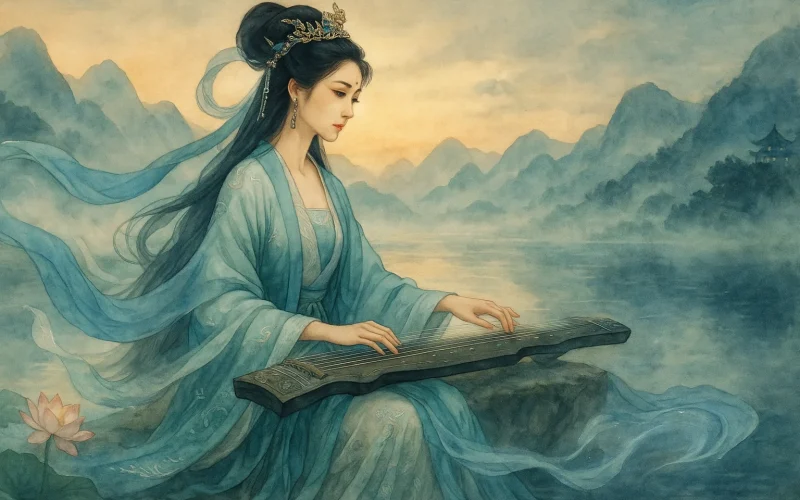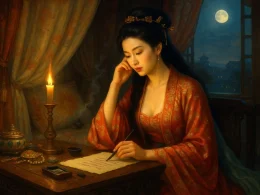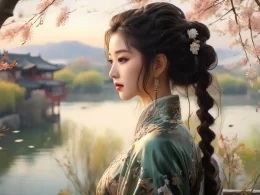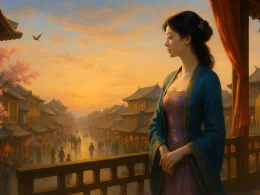Ten cycles of moonlight drench the courtyard plane;
This night finds the wanderer facing walls alone.
Surely the Moon Goddess knows sorrow too—
Her jade toad and cassia stand chilled in stone.
Original Poem
「中秋月」
晏殊
十轮霜影转庭梧,此夕羁人独向隅。
未必素娥无怅恨,玉蟾清冷桂花孤。
Interpretation
Composed during the Mid-Autumn Festival while Yan Shu was traveling on official business, this poem reflects the Northern Song statesman's profound loneliness despite his successful career. Through the dual lens of personal isolation and celestial allegory, it articulates the quiet melancholy of a displaced scholar-official during the traditional family reunion festival.
First Couplet: 十轮霜影转庭梧,此夕羁人独向隅。
Shí lún shuāng yǐng zhuǎn tíng wú, cǐ xī jī rén dú xiàng yú.
Ten cycles of frost-light pivot round courtyard wu-trees—
This night finds the exile facing corners alone.
The couplet establishes a cosmic-clock mechanism: the "ten cycles" (十轮) of moonlight through the frosty air mark time's passage with astronomical precision, while the exile's static position ("facing corners") emphasizes human immobility against celestial motion. The wu-trees (庭梧), traditionally associated with noble character, stand as silent witnesses to this quiet despair.
Second Couplet: 未必素娥无怅恨,玉蟾清冷桂花孤。
Wèi bì sù é wú chàng hèn, yù chán qīng lěng guì huā gū.
Can the Moon Goddess be free of sorrow's trace?
Her jade toad chills, cassia stands in lonely grace.
The rhetorical question transforms celestial mythology into psychological mirroring. The "jade toad" (玉蟾) and "cassia" (桂花), traditional moon palace elements, become objective correlatives for bureaucratic isolation—the cold jade reflecting official life's emotional sterility, the solitary cassia embodying intellectual isolation. This projection of human pathos onto the moon completes the poem's cosmic-human continuum.
Holistic Appreciation
"Mid-Autumn Moon" reveals the poet's inner solitude and sorrow through a layered depiction of the autumn moonlight and the loneliness of being far from home. The opening couplet presents a tranquil scene—moonlight casting shifting shadows—yet beneath the surface lies the melancholy of a traveler. The following couplet shifts to imagination, using the solitude of Chang'e (the moon goddess) to mirror the poet's own state. Though the poem never explicitly mentions "homesickness," every word subtly conveys this longing. By skillfully blending imagery, the poet connects the cold, desolate moonlight of the cosmos with human loneliness, intensifying the poem's lyrical power and artistic impact.
Artistic Merits
This poem employs a "scene-to-emotion" approach, seamlessly merging the unique chill of a mid-autumn moonlit night with personal sentiment. The language is concise, and the imagery elegant—phrases like "tenfold frost-lit shadows" and "jade toad and osmanthus" crystallize classical beauty. Emotionally, it is restrained and indirect, subtly projecting the traveler's state of mind onto the imagined figure of Chang'e. The composition is delicate, excelling in subtle depth; though a seven-character quatrain, its artistic conception lingers with profound resonance. It showcases a rare beauty in Yan Shu's poetry—one of quiet sorrow and distant clarity.
Insights
Through the lonely atmosphere of a mid-autumn moonlit night, this poem articulates the shared nostalgia and longing of wanderers across time and place. No matter where one is, seasonal changes and evocative scenes inevitably draw the heart back to home and loved ones. By projecting his own melancholy onto the solitary Chang'e, the poet reminds us that even amidst breathtaking beauty, the absence of kinship leaves the soul hollow and desolate. This indirect, imagery-laden mode of expression teaches us that true reunion lies not merely in physical togetherness but in emotional resonance and spiritual solace.
About the Poet
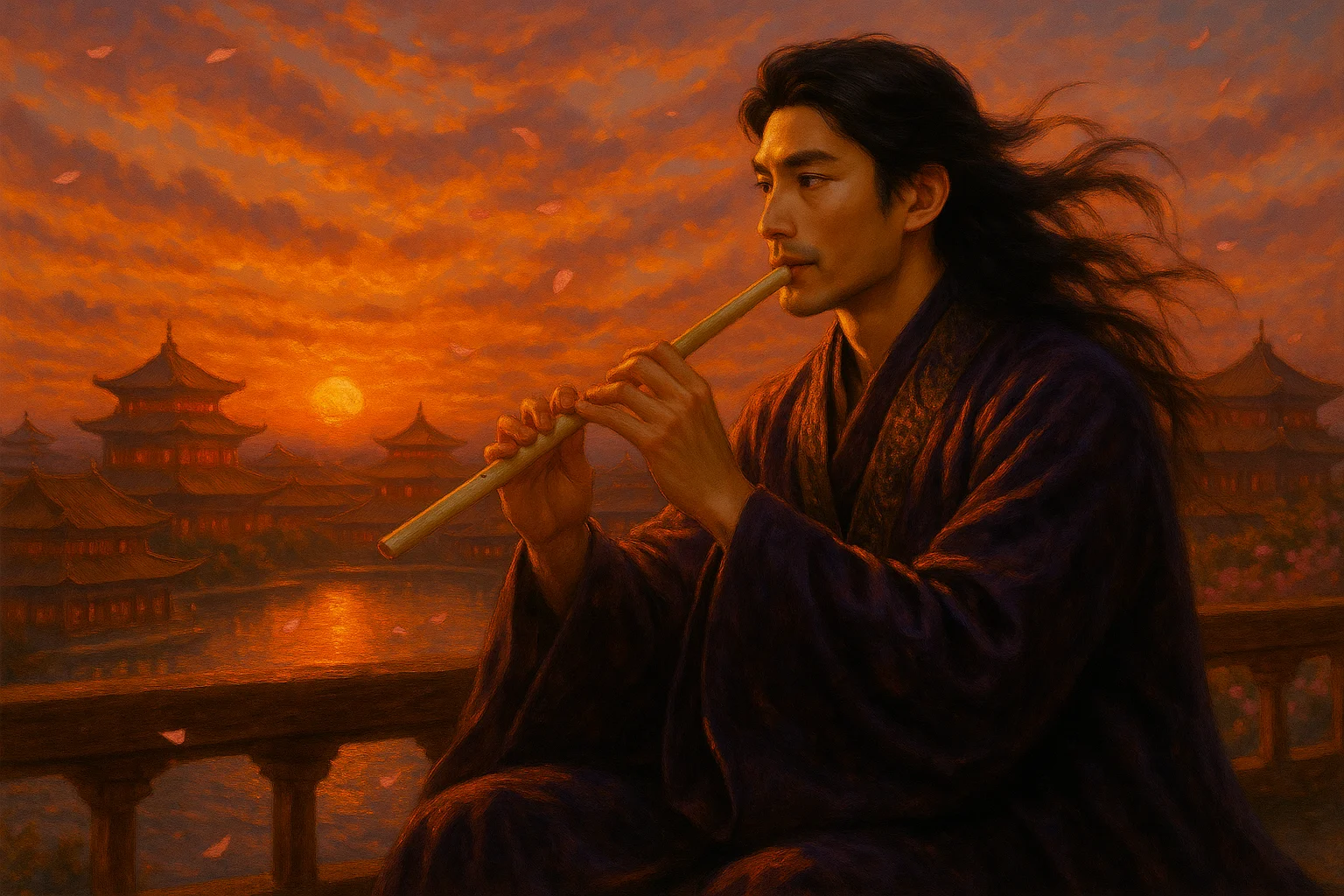
Yan Shu (晏殊 991 – 1055) Originaire de Fuzhou dans le Jiangxi, Yan Shu fut le maître fondateur de l'école wanyue (élégante et retenue) de la poésie ci sous les Song du Nord. Enfant prodige entré dans l'administration à quatorze ans, ses ci allient noblesse classique et méditation philosophique dissimulée sous des évocations de prospérité raffinée. Mentor de talents comme Fan Zhongyan et Ouyang Xiu, il initia l'École du Jiangxi en poésie ci et posa les bases de l'épuration du genre sous les Song.








